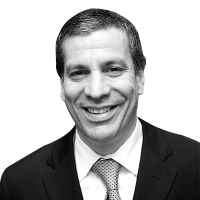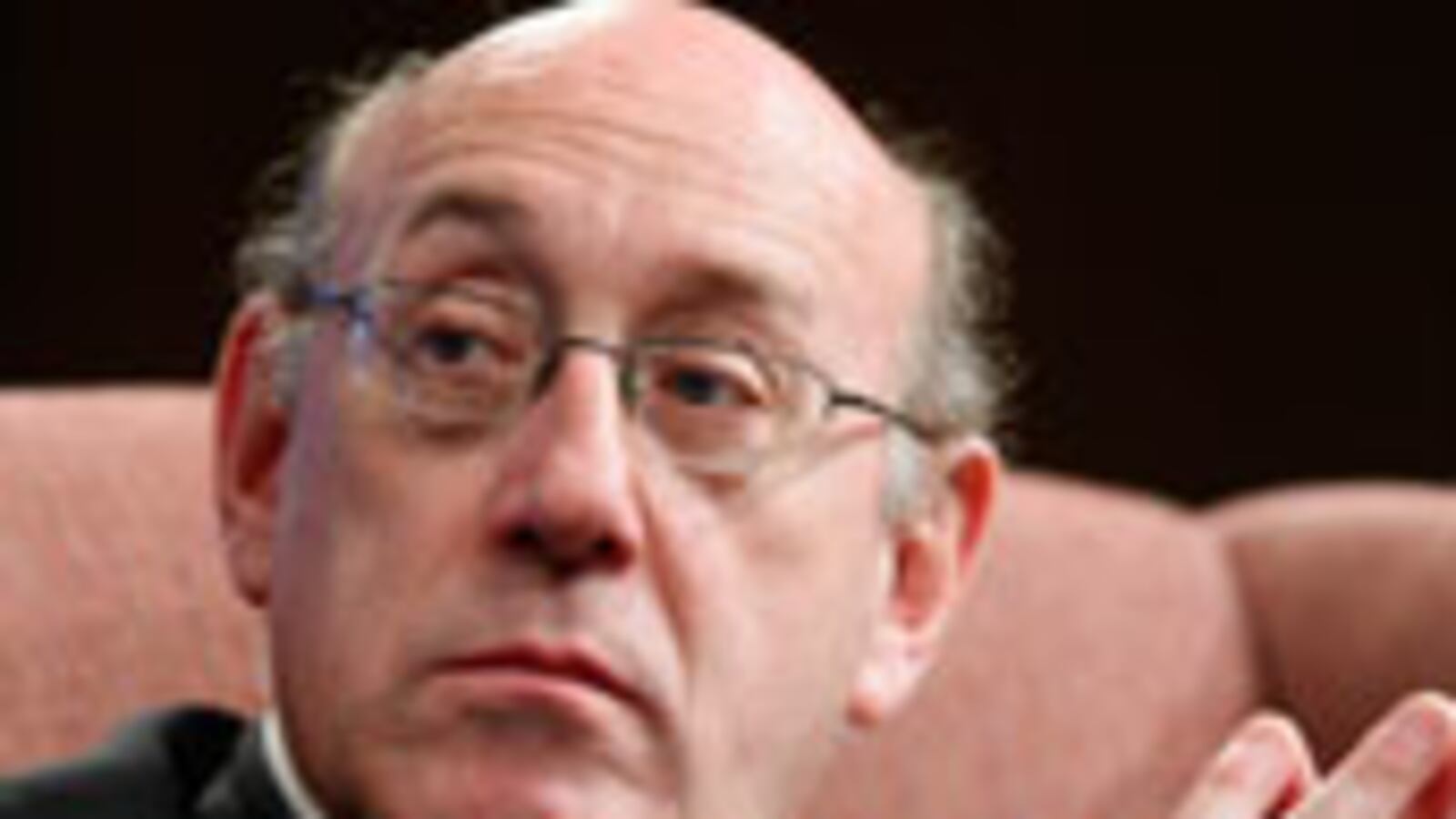
Goldman Sachs CEO Lloyd Blankfein is a very worried man, but not for the same reasons as his counterparts at Citigroup and Bank of America, who, a full year after being bailed out by the government, still wonder whether their firms can survive in the long run.
No, Blankfein’s problem is different: Goldman is making a lot of money these days, having amassed a bonus pool of $20 billion. Normally that would put Blankfein in line to earn around $60 million for 2009, and his senior staff not much less. But given that Goldman Sachs was bailed out as well—with a $10 billion government loan during the meltdown days —reasonable people are asking a reasonable question: Is it fair that Goldman showers so much money on its senior people who, but for the grace of the American taxpayer, would be working somewhere else?
House Speaker Nancy Pelosi is now in charge of risk? That can’t be so. But it is. “She has one vote,” was Feinberg’s reply.
That question is a hot topic in Washington these days as lawmakers are weighing various proposals to rein in such lofty compensation packages in the future. Blankfein, according to friends and colleagues, knows he can’t pay himself or his top people as he would normally would.
For all those reasons, Blankfein is worried. He’s told other top executives that he’s now concerned that if he can’t pay his management team, they might leave the firm. The senior team that made Goldman the best on Wall Street (even if it was bailed out last year) might be leaving for greener pastures in places the government has less stroke, namely in the private-equity business or at hedge funds.
Of course, it’s hard to feel too sorry for Lloyd Blankfein. The very fact that’s he’s complaining about making $10 million this year as opposed to $60 million in the first place makes me ill—even more so than his recent bizarre pronouncement to the Times of London, that he does “God’s work” at Goldman.
And while he’s working for the Lord, the firm still benefits mightily from being officially classified as a commercial bank, instead of what it really is, a big risk-taking hedge fund. Because the feds think Goldman is so important to the financial system, it gets to borrow as if it were a bank, from the Fed during times of stress, but more cheaply in the open market. This borrowing makes its risk-taking more profitable, thus the $20 billion bonus pool that being amassed with a taxpayer subsidy.
But the main reason I don’t feel sorry for Goldman is that the firm has managed to pay back its loans and, as a result, put itself outside of the purview of Kenneth Feinberg, the “Special Master for TARP Executive Compensation.” (Essentially, any firm that hasn’t returned the bailout money must answer to Feinberg. He determines how much is too much when it comes to paying top executives, hence his moniker, Pay Czar.)
I had a chance to interview Feinberg Monday night during a dinner sponsored by Directorship magazine, a trade publication that covers boards of directors and corporate-governance issues such as compensation. Feinberg is an interesting character in that he really believes that by limiting the pay of top executives on Wall Street we can prevent another financial meltdown.
At least that’s what he suggested throughout his speech as he described his job, mainly how he determines how much is too much when it comes to paying people at TARP-affected banks, particularly Citigroup and Bank of America, both still owned in large part by the federal government.
When it came time for the Q & A, I pointed out the following to Feinberg: If compensation is at the root of the problem, why did Jimmy Cayne, the former CEO of Bear Stearns, and Dick Fuld, the former CEO of Lehman Brothers, take so much risk during the boom years and then when the bubble burst, hold on to their stock and lose countless millions? I told him I thought something else must have weighed more heavily in their decision-making that just pure greed. My point was that both Fuld and Cayne never sold their shares because they thought they had backup, namely that the federal government would come to their rescue, bail them out with cheap money, lower interest rates to near zero, and the added liquidity would wash away the sins of their excessive risk-taking as it did some many times in the past.
Feinberg thought I made a valid point, but failed to say whether he believed compensation or government incentives prodded Wall Street to take more risks than it should. But then he made the following amazing revelation: He said it is his duty to carry out the law that created TARP, a law that basically left Congress in charge of assessing the proper levels of risk-taking, which is the bottom-line determinant of compensation. He believes that someone in line to earn $100 million, as, say, Andy Hall, the former Citigroup trader was, should not work at a firm that is still owned by the government, because if he’s bringing in $100 million, Congress believes he’s taking too much risk.
Congress as Risk Czar? House Speaker Nancy Pelosi is now in charge of risk? That can’t be so. But it is. “She has one vote,” was his reply. The other votes going to Barney Frank, Charlie Rangel and the rest of the congressional leadership.
My point here is a pretty simple one: Throughout the last 30 years, if there was one certainty to the greedy roll of the dice made by Wall Street—it was the subsidy that the government gave Wall Street every time it bet wrong, which only led to even more risk-taking until the system imploded last fall.
And now we’re in the position where we have officially named as the gatekeepers the very same people who helped cause the problem in the first place.
I may not feel sorry for Lloyd Blankfein, but at least I understand why he’s worried.
Charles Gasparino is CNBC's on-air editor and appears as a daily member of CNBC's ensemble. He is a columnist for The Daily Beast and a frequent contributor to the New York Post, Forbes, and other publications. His book about the financial crisis, The Sellout, was recently published by HarperBusiness.






